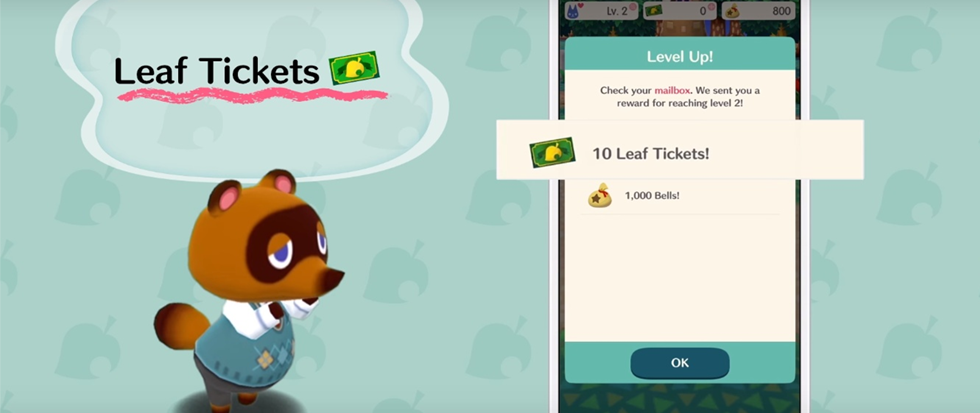
Pocket Camp: An Exercise in Capitalist Banality
“72-Hr Limited Offer!” A small but unsightly banner at the top left corner of Animal Crossing: Pocket Camp rudely mocks me every time I log in. If I come back to the game a few hours later, the banner still lingers as a ghastly reminder of Pocket Camp’s capitalist leanings.
Here’s how the game functions. Strike up a conversation with one of the many animal denizens, and they will feverishly remind you of the benefits of Leaf Tickets, a premium currency that can be bought with real money. Shyly invite villagers to your campsite—a humble corner in a far-flung woodland—and they will, with some awkwardness, remark that you need to purchase and craft more amenities first before they can drop by. Become close friends with a few, and they will convince you to spend some thousand bells on a trinket they really, really, really need to see erected in your camp. I’ve almost expecting Filbert, an adorable squirrel buddy who requested for a colossal Space Shuttle to be assembled in his name, to give me a knowing wink for his preposterous request. And then tantalizingly whip out a booklet of Leaf Tickets and pantomimed, “Only four easy payments of $19.95! But wait—there’s more!”

It’s a far cry from the other titles from the series, which were much loved for providing a respite from the real world. Pocket Camp demands so much of your time and resources. It reeks of inauthenticity, with everything engineered to wring as much attention and money from its players as possible. You see, everything in the game—from nurturing friendships to camp-warming parties—are rooted in commerce. Cookouts and barbeques with your favorite animals become economic transactions, concluding with bountiful rewards of bells and sometimes ultra-rare resources. I realize I’m only making friends because I want them to give me nicer furniture and clothes.
Everyone wants a favor: a ridiculous monument in the camp; a favorite but hideous lime green chair to lounge in; an entire pizza that takes seven hours and rare preservatives to craft (courtesy of the local carpenter, after all)—so they can enjoy themselves in your camp at your expense. Eventually, even the act of customizing your campsite, which used to be the biggest draw of Pocket Camp, becomes a grind. What’s more insidious is that these activities are disguised under the thin veneer of fun and friendship. And then Pocket Camp feeds you more sleaze by unlocking more furniture to be crafted, fueling consumerism with such hysterical glee that you’ll never be satisfied with your lot. It’s capitalism at its most soulless.
The absurd truth is that capitalism, as an economic and political system, is sheer banality. There’s a reason why parables about the rise of the proletariat always seem so much more exhilarating and even romantic. The capitalist ideology is simply at odds with individualism, passion and spontaneity. Instead, coursing through its veins is a penchant for mundane predictability and cold, economic calculation. Homogeneity is sacrosanct. Financial markets will crumble if no one continues buying the same goods everyone else have. Uprisings and revolutions are fractious and abhorrent—mainly because no corporations have figured out how to package these into neat, consumable products for a socially conscious demographic (Pepsi famously tried to, but failed spectacularly).
Pocket Camp is essentially capitalism distilled into a fun-sized mobile game. Its predisposition to consumerism encourages players to keep buying clothes, furniture, things—anything. In fact, calling Pocket Camp a game is a misnomer; the objective is never to entertain its players, only to encourage player addiction and predictability. And if you’re a bourgeoisie Whale—what videogame companies call their biggest spenders who are willing to drop at least $100 per month on freemium games—well, you’ve exactly the corporate wet dream Nintendo wants to hook in.
In other words, Pocket Camp will cease to be enjoyable after a few days, with the drudgery of the experience sure to awash you with boredom. Tap into your proletariat rage and just uninstall the game.





